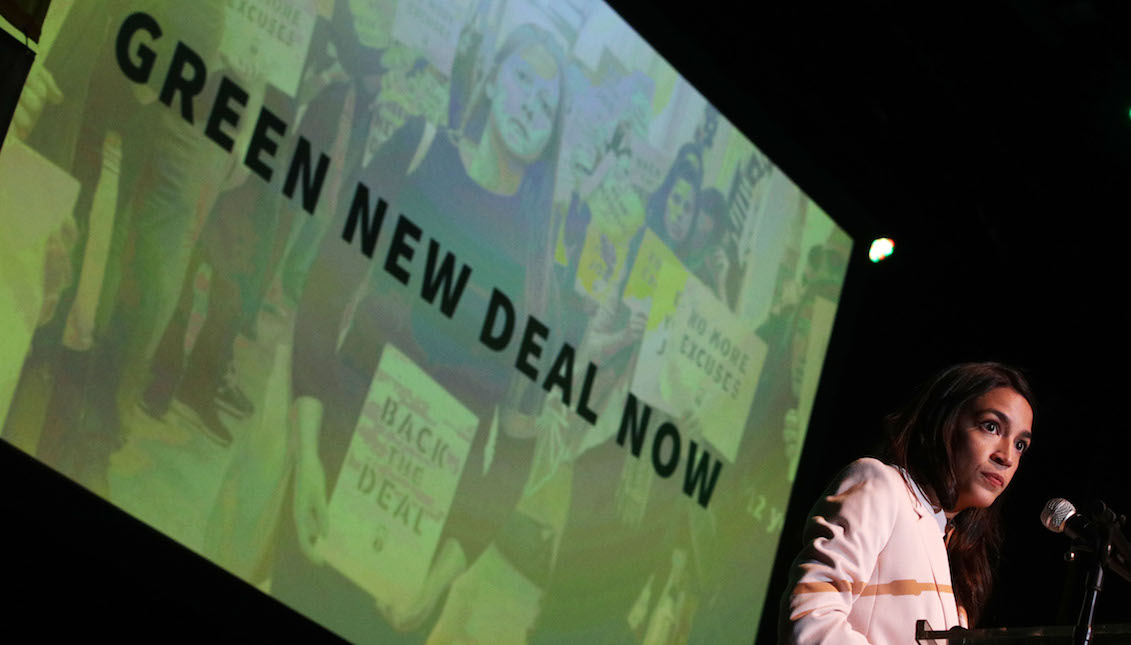
Politics or environmentalism? What the Green New Deal entails
After the mid-term elections, three words have suddenly resounded in the Democratic discourse: Green New Deal.
Playing with the title of public strategies of the Roosevelt era, the Green New Deal is an economic stimulus program that includes proposals such as increasing renewable energy and the efficiency of natural resources, as well as opposing fossil fuel dependence.
Thanks to the media revolution spearheaded by representatives such as Alexandria Ocasio-Cortez, the initiative went from being a base element for political campaigns — like that of Senator Bernie Sanders in his presidential crusade — to being a formal legislative proposal on paper.
The term appeared in the media in the mid-2000s, coined by the Green New Deal Group and subsequently promoted by the United Nations Environment Program.
On the premise of "building a sustainable future," the proposal presents development routes with low gas emission, equitably based on natural resources and focused on the development of communities.
Similarly, it supports discoveries such as those of Pavan Sukhdev's study, “The Economics of Ecosystems and Biodiversity,” which proposes that adequate management of ecosystems and biodiversity, as well as the inclusion of "natural capital" in administrative and business management, could reduce the cost of future losses.
The Green New Deal emphasizes the need to prioritize government investment in energy and resource efficiency (especially reusable energies) that could imply the transformation of infrastructure with low carbon emissions, and therefore more job opportunities.
According to the proposal, the funds would come from "a tax directed at the profits of the oil and gas companies," as well as financial incentives such as low-interest rates on the green investment.
RELATED CONTENT
It also suggests "to stop the evasion of corporate taxes through mandatory financial reports," and the restriction of tax havens.
While there is a Green Party of the United States - founded in April 2001 and on previous organizations such as the Citizens Party - its participation in national politics is very limited.
Since November 2018, the Democratic Party has embraced the proposal of a Green New Deal in its strategy to appease a much more diverse, young base.
Members of the party, such as Reps. Alexandria Ocasio-Cortez, Deb Haaland, Rashida Tlaib, Ilhan Omar, and Antonio Delgado, have echoed activist groups and brought the proposal to the halls of a new Congress.
Currently, 18 Democratic members of Congress have supported a House Select Committee to evaluate a proposal on the Green New Deal, entirely rejecting President Trump's denial and promoting a "national, industrial and detailed economic mobilization" project to achieve a “carbon neutral, fair environmentally just economy."
Sponsors of the proposal may formally introduce it at the beginning of 2020.










LEAVE A COMMENT: